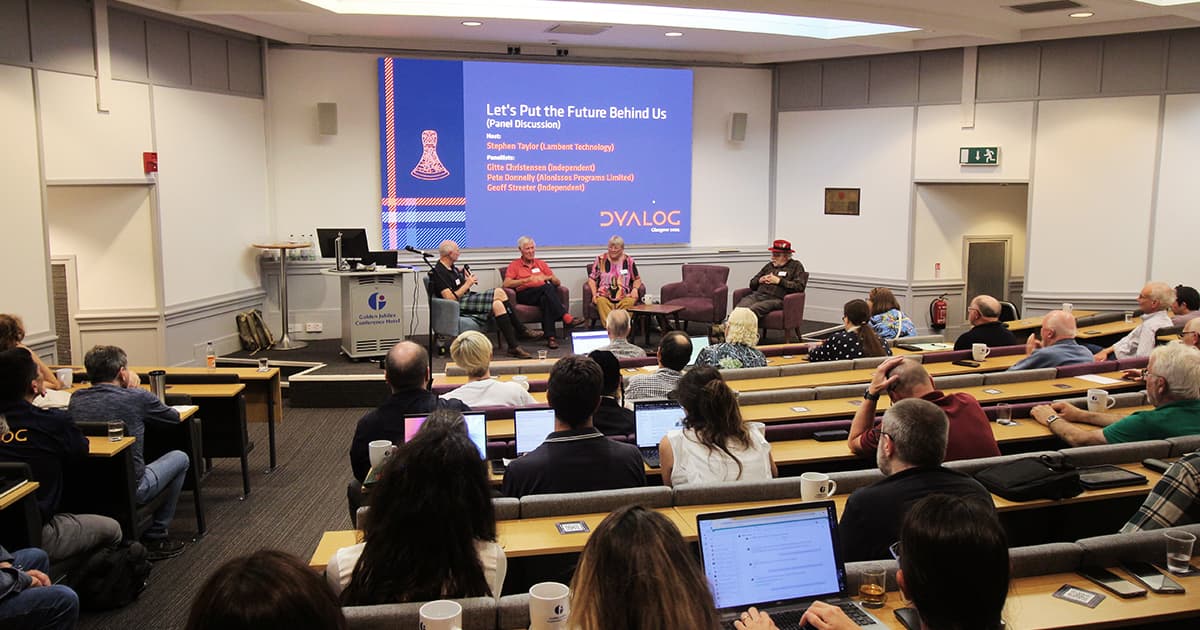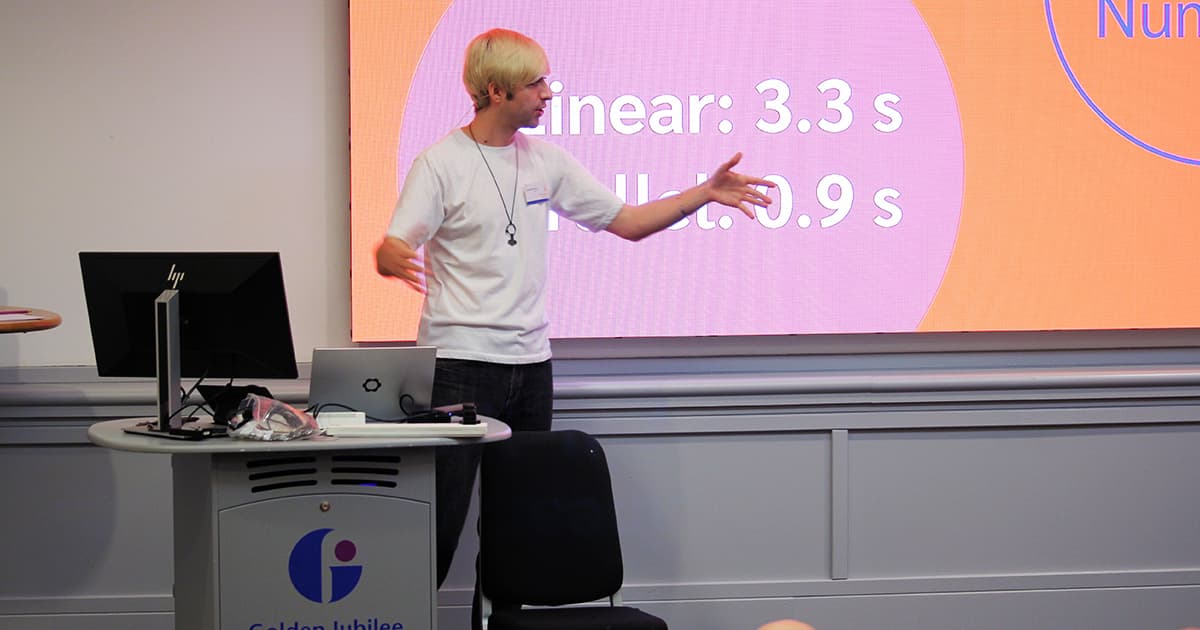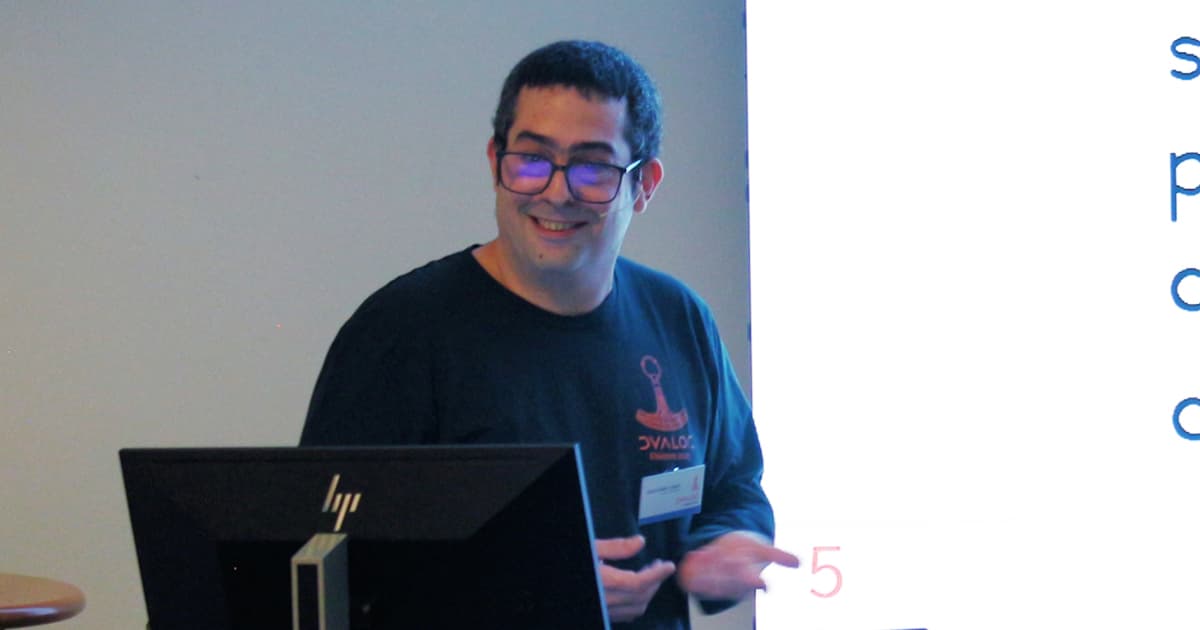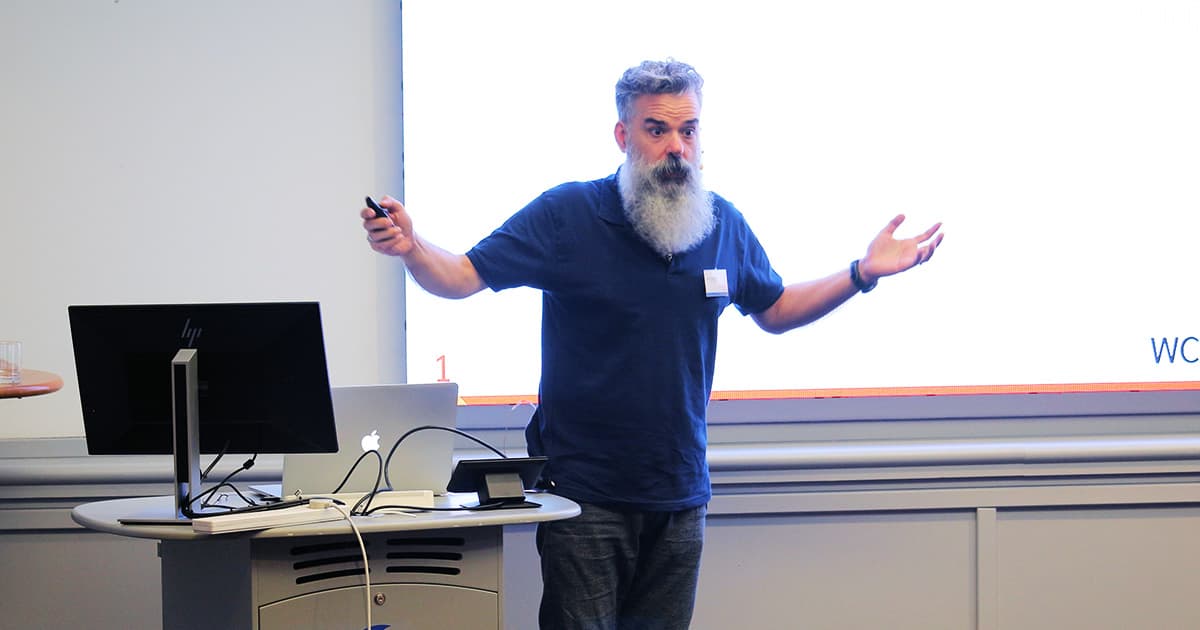Dyalog ’24 Videos: Week 6 – Remembering the “Old”, Welcoming the “New”

The main theme this week is remembering how we got here – and welcoming a new generation of APL users. There are three talks and a panel discussion looking back on careers spent working on or with APL, and a final panel discussion with members of the new generation, which will hopefully wipe away some […]
Welcome Neil Kirsopp

Neil studied Artificial Intelligence at the University of Edinburgh in the 2000s. At the time this was not a popular option; to the best of his recollection, only three universities in the UK offered degrees in the subject! He found his way to APL due to a fascination with programming languages – not so much […]
Dyalog ’24 Videos: Week 5 – Best Practices

Most of the recordings that we are releasing in week 5 concern “best practices” for the use of APL in large or complex systems. Many of these are mentioned in the invited keynote Dyalog APL in the Biggest Data Centres at the Heart of the Investment Management Industry by Oliver Lanz from the product development […]
Dyalog ’24 Videos: Week 4 – Migrating APL Code, and New GUI Frameworks

The presentations released this week are about APL applications on the move. Some applications are moving from one APL implementation to another, for example from APL2 or APL+Win to Dyalog APL. Others are moving from one platform to another, for example from a mainframe or the Microsoft Windows desktop to Linux in docker containers in […]
Dyalog ’24 Videos: Week 3 – The APL Forge, Education, and Data Science

The recordings released this week focus on activities related to attracting new users to APL. For many years, the APL Problem Solving Competition was a cornerstone of our efforts to promote APL to a new generation of potential users. This year, we introduced the APL Forge, where prizes are awarded for original work done in […]
Dyalog ’24 Videos: Week 2 – New Functionality

The recordings released this week focus on active development projects at Dyalog Ltd. The first three presentations describe features that are expected to be in the next version of Dyalog. In Setting and Getting Variable Values Mk II, Adám Brudzewsky describes a set of new system functions for setting and getting variables’ values using arrays. […]
